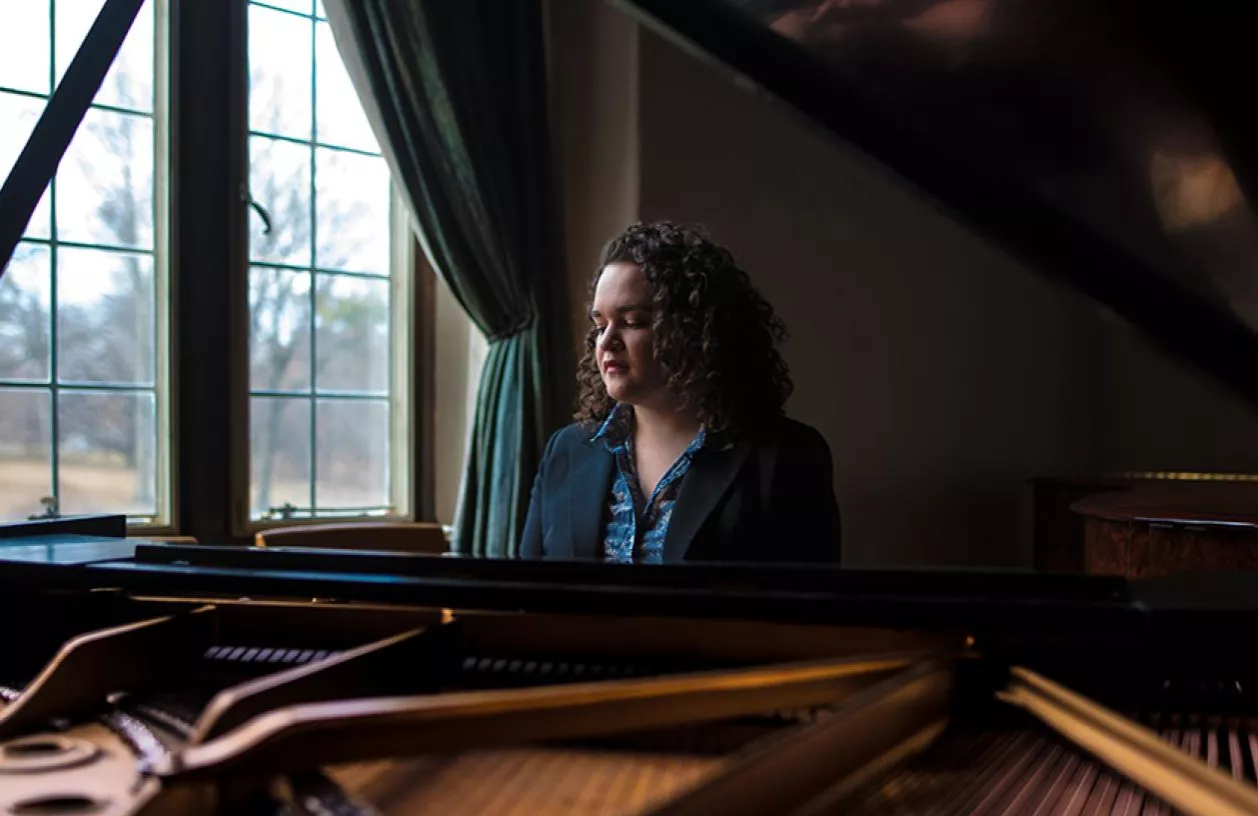
A linguistics and music double major, Kathryn Goldberg ’18, was able to combine her two academic interests in fall courses with Haverford professors Brook Lillehaugen (linguistics) and Ingrid Arauco (music) to compose what may be the first art song (a classical song, typically set to a poem, written for voice and piano accompaniment) in one of the endangered Zapotec languages of the southwestern-central highlands of Mexico.
Kathryn was introduced to Zapotec languages as part of a group of Bryn Mawr and Haverford students who spent much of the summer of 2017 in the town of Teotitlán del Valle, in the Valley of Oaxaca, doing field work with Lillehaugen, who studies Zapotec languages. After the experience, Kathryn decided to write her thesis on a modern variety of Valley Zapotec. In the fall, Kathryn started writing her thesis and took the course Structure of Colonial Valley Zapotec with Lillehaugen.
“My thesis, as well as this project, reflected my two majors in an interdisciplinary way, as it involved the study of the relationship between speech and vocal music in two songs in Teotitlán del Valle Zapotec,” says Kathryn.
At the same time she was writing her thesis, Kathryn was presented with the prompt for her final project in her Tonal Harmony course with Arauco, a higher-level music theory course for music majors. The final project involved composing an art song set to a poem. Kathryn choose a Zapotec poem called Gyec Muly.
“Though I’ve composed music before, I have never set a text, so this experience was new to me,” says Kathryn. “I know Felipe Lopez, the author of Gyec Muly, personally, and asked him if he would be interested in having one of his poems set to music. I care deeply about the valorization of endangered languages such as Zapotec languages, and especially about amplifying the indigenous voice rather than quelling it as happens so often. There are countless art songs in French, German, or English, and not a single one in Zapotec, so I wanted to give it a try.”
In doing the project, Kathryn focused on trying to make sure every word was reflected well in the music. Because of this, a simple translation, which was given to her with the poem, would not suffice.
“I had to do some extra work as a linguist, using the translation and other resources available to understand every word in the poem. I’m very pleased with how it turned out.”
See the results in the video below. Kathryn is playing the piano, and Emily Drummond '17, is singing:
Kathryn had both linguistics and music on her radar when she came to Bryn Mawr and says the offerings of the Tri-Co were a key part of her decision to attend.
“What drew me to Bryn Mawr academically was the number of options I would have because of the Tri-Co. Since I was undecided on my major coming in, it was comforting to know that I had, in some ways, the options of a larger university, with the feel and community of a much smaller liberal arts college.”
Gyec Muly, by Felipe Lopez, with English Translation
Laty rria muly
zhyet riani loguezh.
Bzeinya ricy,
brua ricy.
Tu buny naa?
Dizhsa rgwia,
per nazh dicwat ri ricy.
Wzhiny ruana—
cuan ra sa?
Lazhzyet bunyi nua.
Gyec mulyi nai.
The place where you can just scoop up money,
it’s far away from home.
I arrived here, I grew up here.
What kind of person am I?
I speak Zapotec,
but only deaf people live here.
I cry at night—
where is my family?
I live in the foreigners’ country.
This place is a money cage.